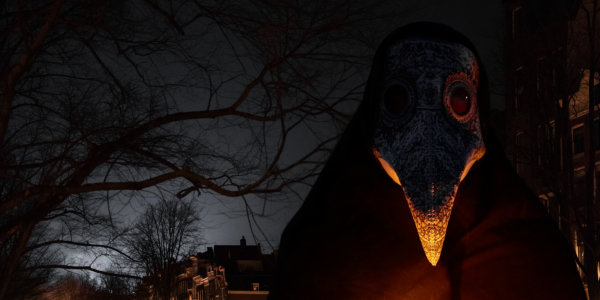In the midst of the present COVID-19 pandemic, it is perhaps instructive to compare our situation as victims of the coronavirus with that of an earlier plague for which we have copious anecdotal and statistical data. The notorious Great Plague of London of 1665, like COVID-19, was brought from abroad: in our case, it originated in China, and in theirs, it came from the European continent, apparently from Holland, and was spread by infected and flea-infested rats. By the time the plague had passed some eighteen months later, the city’s official death toll was at least 68,000, and may have been as high as 100,000, nearly one-quarter of the entire population of London. At the time of writing, we in Canada have lost 8,300 souls to the virus, this out of a total population of 37 million. There was then no cure at the time for the plague, nor is there yet one for today’s virus, although 90% of those affected by this virus have recovered from it, which was certainly not the case with the Plague. Of course, medical science is today far better able to combat epidemics than it was in its infancy 350 years ago, but mortality marks us all in the end, as it always has. As the poet and priest John Donne remarked in a famous devotion, “Any man’s death diminishes me, because I am involved in mankind; And therefore never send to know for whom the bell tolls; it tolls for thee.” Donne’s words stress a point made repeatedly throughout the present crisis: we each need human contact and community, a quality sadly not in evidence for months most poignantly in the nation’s assisted living residences for the elderly, where isolation from family and friends has been most damaging, and the death toll troublingly high.
Daniel Defoe, better known as the author of Robinson Crusoe, was born in London in 1660 and died there in 1731. He was a journalist who recorded the progress of the Plague by way of the recollections of his parents, their neighbours, and the testimonies of those he met in London coffee-houses and elsewhere, in his A Journal of the Plague Year, which was first published in 1722. He had to rely on these sources because he was only a child when the Plague ravaged the city. In his introduction to the Penguin edition of Defoe’s work, Anthony Burgess credits the author with “fixing a period of history in the public imagination” and of “giving order and form to events only vaguely and chaotically remembered.” Defoe’s somewhat prolix Journal is a vivid and comprehensive study of the Plague, of its human cost in agony and fear, surprisingly clearly written and readable more than 300 years after it first appeared, in large measure because it reads like a novel detailing stories of human suffering recorded with sympathy and understanding.
One such story involves the attempt by three unemployed men, an ex-soldier, a sailmaker, and a joiner, to escape the Plague by leaving the city, but encountering hostility when they approach any community outside London when their funds run low. They are refused admission to Epping, for example, when the gate-keepers fear they are contaminated. (My wife, a former nurse, was only reluctantly granted permission by local police to cross a bridge over the Ottawa River on a mission to take supplies to her family on the Quebec side of the river. The constable told her it would be “on her conscience” if she infected any Quebecois!). The men in Defoe’s story take a tent with them to sleep in. Outside one town, they are joined by other refugees similarly fleeing the Plague, but their swelling numbers bring animosity and suspicion from townsfolk upon them. The three finally return to London. What happened to them after that is unknown.





